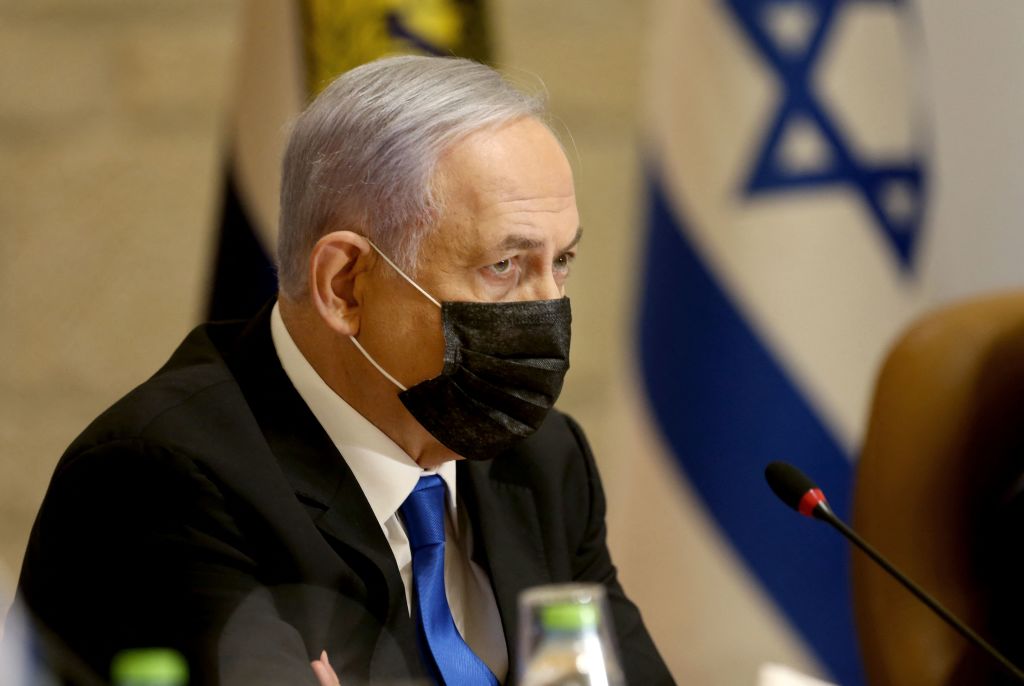How much change will the end of the Netanyahu era bring?

After 12 years as Israel’s prime minister, it appears Benjamin Netanyahu will be deposed next week when a new government is formed under Naftali Bennett of the right-wing Yamina party. The coalition agreement was announced late Wednesday, just minutes before the constitutional deadline that mandated fresh elections if an agreement to form a government wasn’t reached by that time. The government will now have to attain a vote of confidence from the Knesset within a week.
Netanyahu’s arrogance and his cynical approach to politics, primarily guided by his obsession with advancing his own interests, alienated politicians across the Israeli political spectrum from the Labor Party on the left to the ultranationalist Zionist parties on the extreme right. This was the principal reason why the motley collection of parties came together to oust him despite huge differences in their ideologies and economic philosophies, and the clashing political ambitions of their leaders. For the first time in Israel’s history, the ruling coalition will include an Arab party, the United Arab List, one of the last to sign the coalition agreement.
The fragmented nature of the Israeli political spectrum is clearly demonstrated by the fact that it took four elections within the space of two years to lead to this outcome. Netanyahu is a master of political manoeuvring, and after each of the three earlier elections he was able to retain the prime ministership by making promises to political rivals that he inevitably broke, to the great anguish of his coalition partners.
Two major questions emerge as Israel moves into the post-Netanyahu era. The first concerns the stability of the diverse coalition that will take over the reins of power: how long will it last after Netanyahu departs the scene? The second concerns the future of the Israeli–Palestinian conflict. Will this change in government transform the direction of the Israeli–Palestinian relationship and resuscitate the two-state solution that is now on its deathbed?
While it’s difficult to predict how long the coalition will last, it’s clear that, once the spectre of Netanyahu recedes, issues that divide the coalition partners will gain greater prominence. The outsized ambitions of the different political leaders in the coalition will certainly begin to reassert themselves. Yair Lapid, the leader of the centrist Yesh Atid party, which has the largest number of seats among the coalition partners, agreed to accept Bennett as prime minister for the first two years of the current Knesset’s term despite the fact that his Yamina party has seven seats compared with the Yesh Atid’s 17.
The eventual clash of ambitions and personalities will, however, not be limited to Lapid and Bennett. Avigdor Lieberman of the secular right-wing and ultranationalist Yisrael Beiteinu party and Benny Gantz of the centrist Blue and White party must also be resenting the primacy accorded to Bennett whose party has a similar number of seats to theirs. Another source of tension that is likely to affect the coalition’s functioning is the partnership between the United Arab List, whose demands focus on improving the living conditions of Palestinian citizens of Israel and removing the discriminatory treatment they are subjected to, and the ultranationalist Zionist parties. For most coalition members, the arrangement is a marriage of convenience made imperative because, to quote Bennett, ‘There’s [either] unity or fifth elections.’ One wonders, therefore, how long this unity will last.
No movement can be expected on the Israeli–Palestinian front since none of the major coalition partners are particularly concerned about finding a solution to the conflict. With several ultranationalist Zionist parties in the coalition and with Jewish settlers having acquired enormous influence in the Israeli polity, the coalition government wouldn’t want to get embroiled in controversies about a chimerical ‘peace process’ that could only end up in accelerating its disintegration.
The green line dividing Israel and the occupied territories is now a part of the fictional narrative that’s been devised to keep the myth of the two-state solution alive. It was obliterated a long time ago by the continued building of Jewish settlements on a large scale in the West Bank, the annexation by Israel of East Jerusalem, and the construction of Israeli-only roads in the occupied territories dividing Palestinian lands into unviable Bantustans.
The Palestinian Authority, which was perceived by the international community as the legitimate interlocutor on the Palestinian side, has lost all credibility and is seen by most Palestinians merely as Israel’s enforcer in the occupied territories. The idea of a unified entity from the Jordan River to the Mediterranean Sea, which would provide them equal civil and political rights, has increasingly captured the Palestinian imagination as the idea of a just peace based on a two-state solution has receded.
The post-Netanyahu government will therefore be under no compulsion to address the Palestinian issue short of another intifada not only extending across the West Bank and Gaza but also embracing the Palestinian citizens of Israel. Such a possibility cannot be ruled out in light of the events of last month that demonstrated that the Palestinians’ perceptions of the predicaments facing them in Gaza, the West Bank and within Israel, despite differences in detail, are in essence the same based on the doctrines of dispossession and discrimination emanating from the huge inequality in power between the Israeli state and the Palestinian population.
However, for now, one can assume that the Lapid–Bennett government will demonstrate the same indifference to the Palestinians’ plight as was the case under Netanyahu, especially since Bennett is firmly opposed to the idea of a Palestinian state and favours the absorption of much of the West Bank into Israel. Plus ça change, plus c’est la même chose.